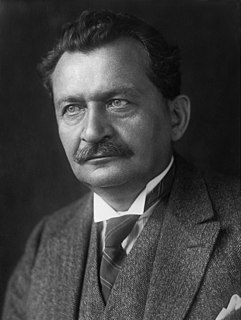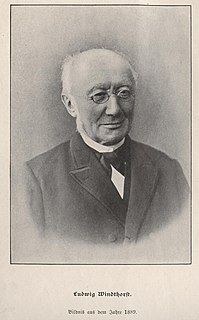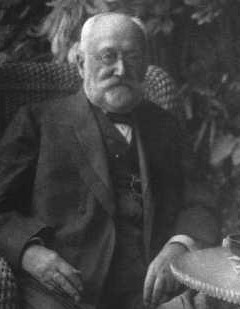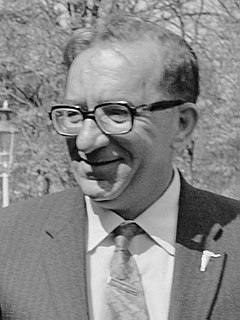The Greens of Andorra is a green political party in Andorra.

Federal elections were held in Germany on 14 September 1930. Despite losing ten seats, the Social Democratic Party of Germany (SPD) remained the largest party in the Reichstag, winning 143 of the 577 seats, while the Nazi Party (NSDAP) dramatically increased its number of seats from 12 to 107. The Communists also increased their parliamentary representation, gaining 23 seats and becoming the third-largest party in the Reichstag.

Federal elections were held in Germany on 20 May 1928. The Social Democratic Party of Germany (SPD) remained the largest party in the Reichstag after winning 153 of the 491 seats. Voter turnout was 75.6%.

Federal elections were held in Germany on 20 February 1890. The Centre Party regained its position as the largest party in the Reichstag by winning 106 of the 397 seats, whilst the National Liberal Party, formerly the largest party, was reduced to 42 seats. Despite receiving the most votes, the Social Democratic Party won only 35 seats. Voter turnout was 71.5%.

Federal elections were held in Germany on 16 June 1898. Despite the Social Democratic Party (SPD) receiving a plurality of votes, the Centre Party remained the largest party in the Reichstag after winning 102 of the 397 seats, whilst the SPD won just 56. Voter turnout was 68.1%.

Federal elections were held in Germany on 16 June 1903. Despite the Social Democratic Party (SPD) receiving a clear plurality of votes, the Centre Party remained the largest party in the Reichstag after winning 100 of the 397 seats, whilst the SPD won only 81. The voter turnout for the election was 76.1%.

Federal elections were held in Germany on 15 June 1893. Despite the Social Democratic Party (SPD) receiving a plurality of votes, the Centre Party remained the largest party in the Reichstag after winning 96 of the 397 seats, whilst the SPD won just 44. Voter turnout was 72.4%.

Federal elections were held in Germany on 12 January 1912. Although the Social Democratic Party (SPD) had received the most votes in every election since 1890, they had never won the most seats, and in the 1907 elections they had won fewer than half the seats of the Centre Party despite receiving over a million more votes. However, this election saw the party win more than double the number of votes of the second-placed Centre Party and become the largest party, winning 110 of the 397 seats.

General elections were held in Luxembourg on 18 June 1989. The Christian Social People's Party remained the largest party, winning 22 of the 60 seats in the Chamber of Deputies. It continued the coalition government with the Luxembourg Socialist Workers' Party.

General elections were held in Belgium on 16 November 1919. Although the Belgian Labour Party received the most votes in the Chamber of Representatives elections, the Catholic Party remained the largest party in both the Chamber and the Senate. Voter turnout was 88.5% in the Chamber elections.

General elections were held in Malta between 12 and 14 June 1971. The Malta Labour Party emerged as the largest party, winning 28 of the 55 seats.
Partial general elections were held in Luxembourg on 3 June 1934, electing 29 of the 54 seats in the Chamber of Deputies in the south and east of the country. The Party of the Right won 12 of the 29 seats, but saw its total number of seats fall from 26 to 25.
Partial general elections were held in Luxembourg on 6 June 1937, electing 26 of the 55 seats in the Chamber of Deputies in the centre and north of the country. The Party of the Right won 13 of the 26 seats and remained the largest party with 25 of the 55 seats.

Parliamentary elections were held in Hungary on 25 and 26 January 1920. However, they were only held in 164 districts. After the Treaty of Trianon was signed, the 44 districts previously occupied by Romania voted between 13 June and 5 July, whilst the 11 districts occupied by Serbia did not vote until 30 and 31 October 1921. The election was held with compulsory voting. In protest at this and other changes to the franchise that left 60% of the voting age population unable to vote, the Hungarian Social Democratic Party boycotted the elections, and called for its supporters to cast invalid votes, resulting in an unusually high number of blank or invalid votes - 11.8% in the January elections and over 20% in Budapest and other major cities.

Parliamentary elections were held in Hungary between 8 and 15 December 1926. The result was a victory for the Unity Party, which won 161 of the 245 seats in Parliament. István Bethlen remained Prime Minister.

Parliamentary elections were held in Hungary between 31 March and 7 April 1935. The result was a victory for the Party of National Unity, which won 164 of the 245 seats in Parliament. Gyula Gömbös remained Prime Minister.

Early parliamentary elections were held in Iceland on 18 and 19 October 1942. They were held after reforms were made to the electoral system following the July elections. The Independence Party emerged as the largest party in the Lower House of the Althing, winning 13 of the 35 seats.

General elections were held in Liechtenstein on 11 March 1918, with a second round on 18 March. They were the first elections held in the country contested by political parties, as the Christian-Social People's Party and Progressive Citizens' Party had been founded that year. The Progressive Citizens' Party emerged as the largest in the Landtag, winning seven of the 12 elected seats.

General elections were held in Liechtenstein on 29 April 1945. Following the "silent elections" of 1939, they were the first to use the new proportional representation system. The Progressive Citizens' Party won eight of the 15 seats in the Landtag, but remained in coalition with the Patriotic Union.

General elections were held in Portugal on 28 April 1918, following a coup by Sidónio Pais in December 1917. The elections were boycotted by the Democratic Party, the Evolutionist Party and the Republican Union, who had won over 90% of the seats in the 1915 elections.





















